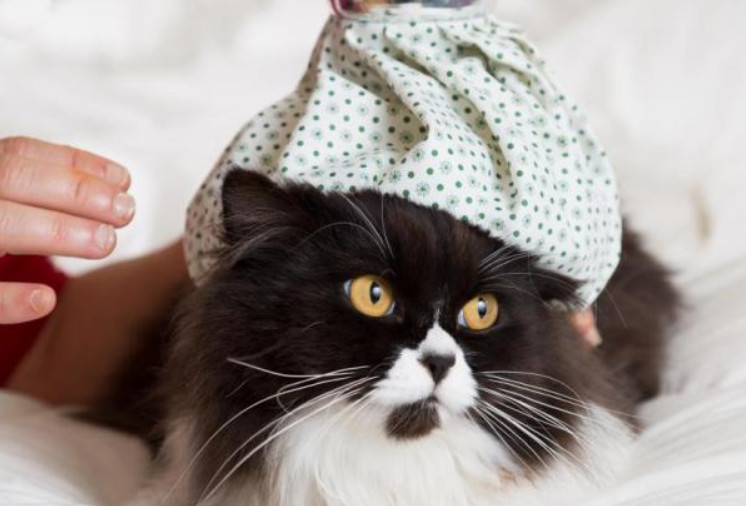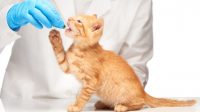As a cat shows symptoms of distemper in cats the owner should separate from other animals and meet with the vet. The infected cat should meet with prompt treatment and intensive care. If the cat with FIV is not treated, the chance the cat will die is 90%.
Cat with Distemper Signs
A symptom of distemper in cats is contagious and also life-threatening. Distemper is known as Feline Panleukopenia ( FPV). This is the disease that affects blood cells in stem cells, bone marrow, and intestinal tract. The disease also causes anemia in cats and other bacterial and viral illnesses. Cats or kitten that infected with distemper show one or more from the following system below:
- Loss of appetite and refuse to eat
- Vomiting
- Dehydration
- Weight loss
- Anemia
- Fever
- Runny nose
- Excessive sneezing
- Diarrhea
- Fatigue
- Difficulty walking
- Lack of coordination
- Hiding
Cause of Distemper in cat
As stated before, distemper is very contagious. The spread of distemper is caused by contact from an infected cat from nasal discharge, saliva, blood, urine, feces, or fleas/insects bitten by an infected cat. The contagious spread also comes from contaminated bedding or equipment and dishes even humans and pass it from one cat to others when it doesn’t wash thoroughly after caring for an infected cat. The virus can be left in clothing and shoes that increase the opportunity to spread to other cats. Infected cat mothers can spread the virus from breast milk or in-utero. This virus is disinfectant resistant and able to survive in years into a contaminated surface. It is similar to the human flu virus disease. It is likely to spread more in warmer seasons. There can be various strains. Fortunately, the virus was not infected by humans and did not pass between cats and dogs.
Distemper in Cats Treatment
There are no treatments that cure distemper. The treatments focus on reducing the symptom pain and keep the car feel as comfortable as possible. The treatment depends on the condition of the car. It may need observation in a veterinary hospital.
After the cat is examined and returned home, it should be quarantined from other cats to avoid spreading. Dehydration and malnutrition should be taken care of promptly. The recovery should be in a warm and quiet place. With proper care, the recovery can take at least two weeks.
Kittens and cats are diagnosed with immune disorders, and pregnant cats are highly prone to be infected with distemper. To prevent and reduce risks of death for cats with symptoms of distemper in cats the vaccines are very effective.







